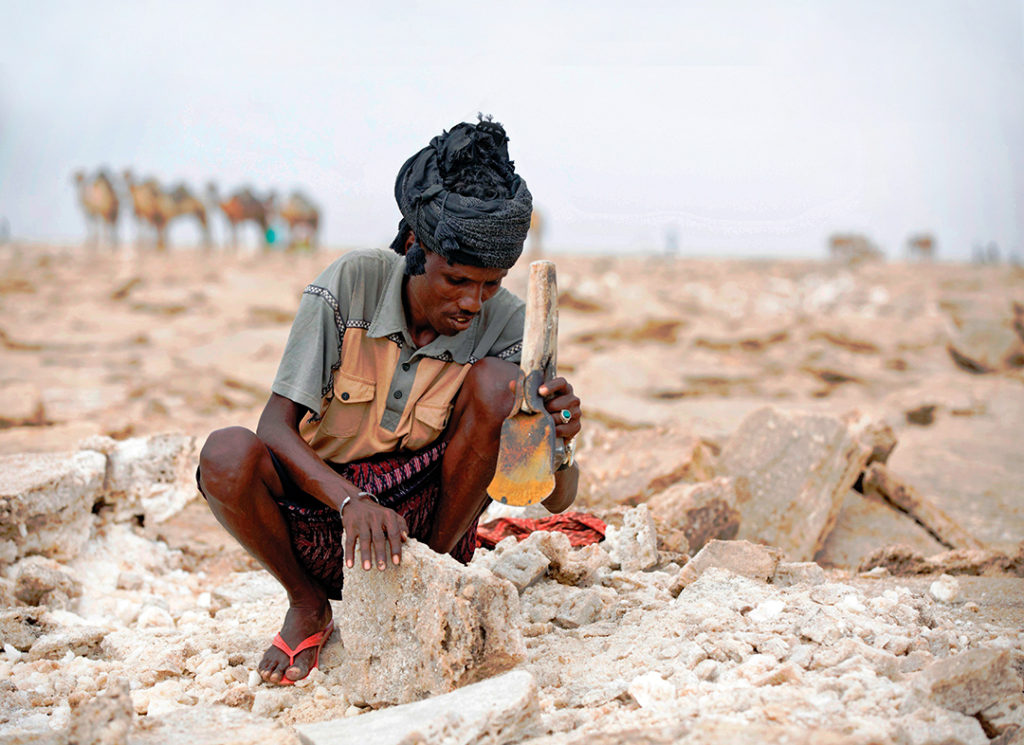AGENCE FRANCE-PRESSE
Every morning, hundreds of men converge on a dry lakebed in Ethiopia, where they cleave at the ground with axes to extract salt. They toil under the gaze of camels that will carry the salt bricks to market, in a trek historians estimate has gone on since the sixth century.
But with the government opening the isolated northern region to investors and tourists by cutting new roads through surrounding mountains, the laborers, traders and caravan drivers say their traditional way of life could soon be lost.
“If it continues like this, it will stop our work,” miner Musa Idris said as he stood at Lake Asale, where temperatures can reach 50 degrees C.
Restaurants and hotels have sprung up in the area, also known as the Danakil Depression, to cater to tourists who visit the uniquely desolate landscape formed by the intersection of three tectonic plates.
The presence of salt in the area has not escaped the attention of mining companies.
Nearby, an Ethiopian company has built a plant that sucks water from the lake into evaporation ponds, creating salt the miners say is costlier but better than the blocks they mine from the lakebed. One of its managers predicts the plant one day will be the main salt supplier in the area.
Perhaps no development has affected the traditional salt industry like the new roads. Getting the salt-laden camels from Lake Asale to the nearest city, Mekele, used to be a four-day trek down rock-strewn gullies. Now, the caravans terminate in Berhale, the region’s main salt trading outpost, which road builders connected to Mekele by tarmac about five years ago. The journey takes only three days.
About 5,000 blocks of salt arrive each day at a trading post on a dry riverbed at the edge of Berhale, from which they are loaded onto trucks that take them as far away as neighboring Kenya.
The Lake Asale miners like Idris have also grown tired of the industry’s backbreaking labor and low wages, despite its long history in the area. “If technology comes and changes it, it would be better.”
Others embrace the traditional way. “We see this as our farmland, so we don’t have anything else but this,” miner Indris Ibrahim said. “My children and grandchildren will hopefully mine in this area.”

